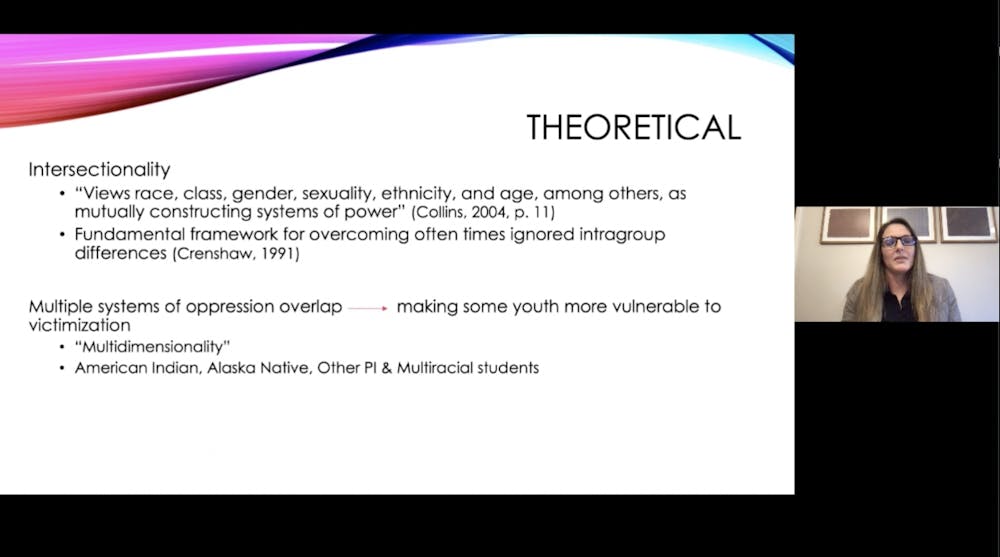A researcher from West Virginia University spoke to the USC community and called for reforms in educational institutions due to the disproportional rates of victimization for people of color who identify with the LGBTQ+ community.
Lindsay Kahle Semprevivo, a teaching assistant professor of criminology in WVU's Department of Sociology and Anthropology, presented her work over Microsoft Teams on Monday. The lecture was given as part of the College of Arts and Sciences' semester theme of 'Climates' in terms of adhering to a "mental, moral, and emotional environment or atmosphere prevailing in a body of people," to emphasize a climate in a multitude of ways.
Her first analysis of data was to show general victimization trends from her research, shown in self-report survey statistics. The trends support correlations of race and identities lead to higher percentages of victimization in multiple areas.
"American Indian, Alaskan Native, other Pacific Islander students and students who identify as multiracial, non-Hispanic have the highest rates of every type of violence, except for homophobic bullying. And again, that kind of goes with the literature. So if you look at the total rates, again, these average rates with these numbers it is, it is higher, and it is concerning. And again, my point here is really to illuminate this intersection," Semprevivo said.
Semprevivo said ways for educational institutions to address the disproportion in victimization include changes to policies and practices, honest conversations and advocacies, and appropriate and trained mental health services. Another one of the interventions she brought up was the continued advocacy of Critical Race Theory.
"We've got to keep fighting for the truth in our history, a non-whitewashed history, an invocation of Critical Race Theory. Because in some respects, this data doesn't lie, right? Regardless of what a school board thinks, regardless of what somebody may think this is what kids are experiencing and that's it. There's still discrimination, there's still racism," Semprevivo said.
The presentation also included questions and comments by Assistant Professor Kaitlin Boyle in USC's department of criminology and criminal justice, who moderated the lecture. This lecture was part of her "Women in Crime" class, where her and her students talk about the pathways to criminalization.
Boyle asked Semprevivo about a quote from "Pushout: The Criminalization of Black Girls in Schools," a film she and her students watched in her class, "they don't see the pain, they just see the bad behavior." She asked what this means in the context of "violent victimization to criminalization."
Semprevivo said teachers and administrators need to be trained to help acknowledge inherent biases and work towards a more proportionate and inclusive environment. Then to also understand the inequalities in society that may be holding kids back and understanding how to help them achieve to the same level as other kids may.
One student asked if there was a "regional affect" in which people who live in the South and identify as LGBTQ+ face more victimization.
Semprevivo said she intends to do future research on this topic, including how geographical location can play into her data.
"So I think the long answer to your question is yes, there is good reason to think that, but more research is needed, multi-level research, not just what the schools will show, but also what's being implemented in those schools," Semprevivo said.

